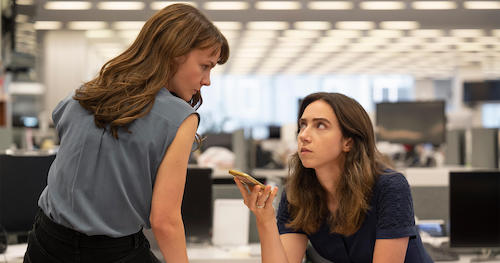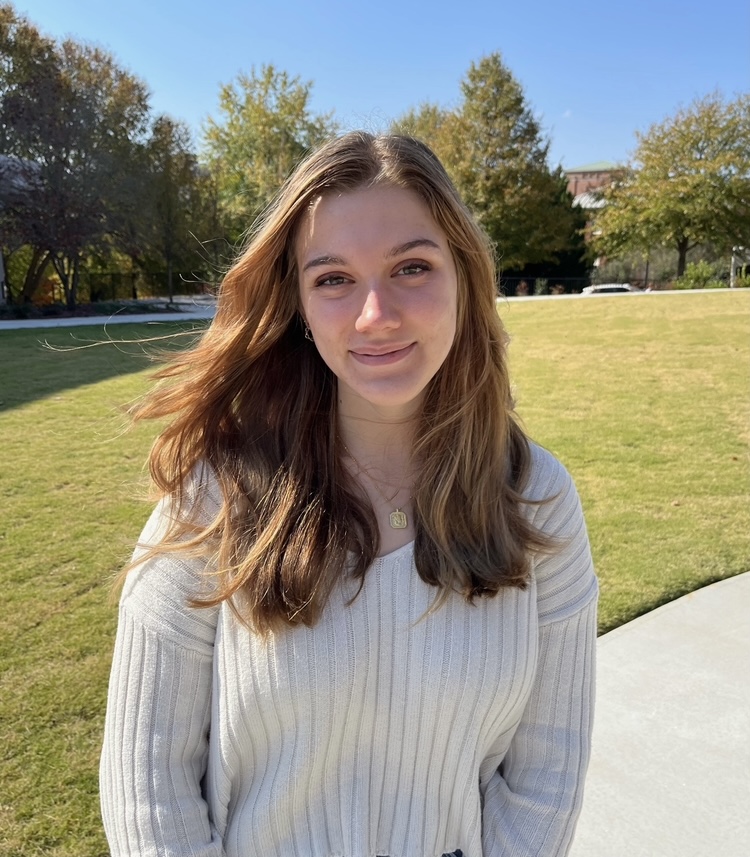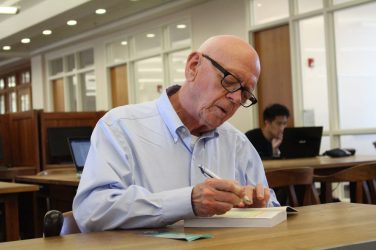Media would be nothing without a good story to tell. Unfortunately, this need to entertain can sometimes manifest as the odd writer or director using women’s pain as a cheap tool to move audiences.

In the wake of movies like “Blonde,” a semi-fictionalized account of Marilyn Monroe’s life, many of us viewers have become so used to seeing women brutalized on screen that we’ve come to expect it. “She Said” had every opportunity to do the same and exploit the experiences of its real characters, but it didn’t.
This movie’s creators seem to want more for women.
From the film’s first scene to its last, female voices, characters and experiences take priority. In fact, only a few recurring male characters are relevant to the story, and thank God, Harvey Weinstein isn’t one of them. The main characters are Jodi Kantor and Megan Twohey, a pair of intelligent yet clinical New York Times reporters with a cute good-cop bad-cop dynamic. Kantor, played by a sweet, empathetic Zoe Kazan, is a warmhearted foil to Carey Mulligan’s steely Megan Twohey.
Together, Kazan and Mulligan form a convincingly stressed-out team of girlbosses but are exhausting to watch. Just once, I wanted lead writer Rebecca Lenkiewicz to give the pair a break and let their actors show some chemistry outside of a sterile, fluorescent workplace environment.
Because of this, the characters who shine are Weinstein’s accusers. They have a devastating humanity that doesn’t rely on low-hanging trauma points to capture the audience’s attention. Perhaps the most emotionally compelling character (out of an incredibly moving bunch) was Laura Madden, played by Jennifer Ehle.
The film begins with Madden as a young woman living in Ireland in the early 1990s; we see her fall in love with the film industry as she works on the set of one of Weinstein’s movies and the grief in the aftermath of her assault. Ehle, playing an older Madden, explores the 20-year journey of her healing with a tender, nearly heartbreaking, vulnerability.
Director Maria Schrader moved the plot mostly through a series of conversations. Although not the most thrilling cinematic choice, Schrader’s emphasis on words and stories over action plays well with the film’s premise. A movie about journalists does not need meaningless escapades; the stories of the victims should be reason enough to care.
The moments where Kantor and Twohey, however, were left to their own accord offered a few much-needed scrolling breaks throughout the film’s hefty running time of two hours and 15 minutes. Alone, these two wouldn’t stand a chance at entertaining audiences.
The peripheral actors, including Ehle, Samantha Morton, Keilly McQuail and Angela Yeoh (portraying Madden, Zelda Perkins, the voice of Rose McGowan and Rowena Chiu, respectively), carry the plot. The creators’ choice to cast lesser-known actors, with the exception of Ashley Judd as herself, in the roles of the women who spoke out against Weinstein created a beautifully authentic portrait of their characters. Although Kazan and Mulligan both played their roles well, Ehle, Morton, Yeoh and the other actors became their characters in a way that big-name celebrities could not hope to mimic.
Outside the conversations that Kantor and Twohey have with their sources, however, the film’s writing feels flat. For tough, all-business Twohey, this style seems appropriate, but Kazan has a harder time injecting her character’s charm into Lenkiewicz’s dryly-written script. Despite all her gushy “hi”s, watery smiles and forced-cutesy FaceTime calls with her children, we don’t get a sense of the woman behind the roles of wife, mother and journalist.

Following the same pattern, the film’s sets attempt to strike a balance between grit and gloss, but the difference feels needlessly stark. The most compelling scenes feature haunting, disembodied voiceovers playing in dim hotel hallways and intimate stories told by the ocean, and then without warning we’re thrust back into the lab-like, over-scrubbed New York Times newsroom. It’s jarring, and it ruins the immersion I felt as Weinstein’s accusers bear their trauma to the world.
Despite its few flaws in storytelling, “She Said” is a gut-wrenching and wholly necessary film. It reminds us of how to do justice to the misogyny and abuse that women face on a daily basis and how to not view the world through a man’s eyes. The intentional omission of any depictions of assault (Schrader and the other creators even chose not to show Weinstein’s face) leaves the audience with the raw, real emotions that the survivors experienced. It hits hard.
“She Said” won’t appeal to every viewer — in fact, a good share of casual movie lovers will probably grow quickly bored. For those who commit to giving the characters a chance to make their impact, however, it is a rewarding use of two hours. Days after watching the film, I find myself thinking not only of their stories, but of all the others left untold.
Josie Lipton is a fourth-year majoring in journalism and art history.








Show Comments (0)